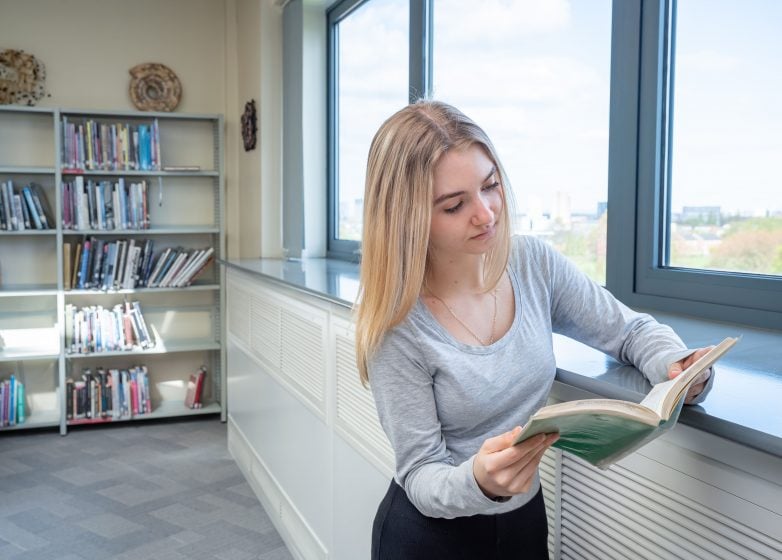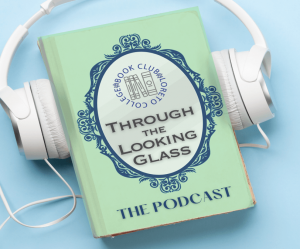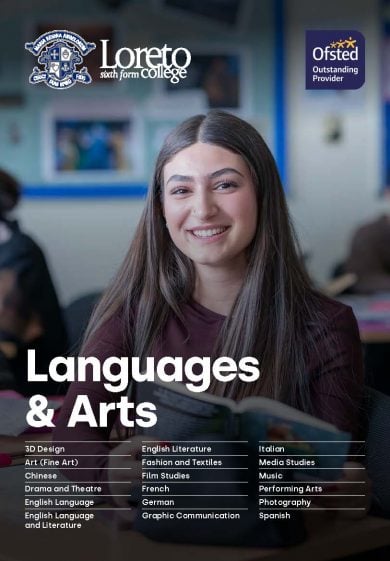
A Level English Literature
- Are you a lover of literature, captivated by the power of words and the beauty of storytelling?
- Do you want to unravel the layers of meaning in literary texts, analyze complex characters, and engage in thought-provoking discussions about themes like love, identity, justice, and the human condition?
Imagine diving into the world of English Literature, where you can explore timeless classics and contemporary works that resonate with the human experience. A Level English Literature is for students who enjoy reading and discussing novels, poetry and plays. You will study texts from across a wide time period and in many different genres, from Chaucer to the modern day.
Exam Board: EDUQAS
Components
Component 1: Poetry
Percentage of total marks: 30%
Method of assessment: Written Exam 2 hours
Poetry Section A: Chaucer’s The Merchant’s Tale
Poetry Section B: The poetry of Philip Larkin and Carol Ann Duffy
Component 2: Drama
Percentage of total marks: 30%
Method of assessment: Written Exam 2 hours
- Drama Section A: Shakespeare.
Drama Section B: A Streetcar Named Desire and The Duchess of Malfi
Component 3: Unseen Texts
Percentage of total marks: 20%
Method of assessment: Written Exam 2 hours
- Unseen Prose and Poetry
Component 4: Prose Study
Percentage of total marks: 20%
Method of assessment: NEA Coursework
- Coursework on a pre-2000 novel – E.M Forster’s A Room With a View and a post-2000 novel, either Mohsin Hamid’s Exit West or Ayanna Lloyd Banwo’s When We Were Birds
Skills
You will develop your analytical skills via class discussions, presentations and essay writing. You will develop a close eye for selecting detailed evidence and producing a well-informed argument.
“I’m really glad I chose English Literature as I can understand the world through people’s experiences from other times and places. I’m developing my analytical skills and doing what I love!”
Click here to listen to our students on the University of Salford’s National College Podcast
Careers/destinations
Our students go on to pursue careers in Law, the Creative Arts, Journalism, Copy-Writing, Marketing, Public Relations, Events, Politics, Civil Service, Publishing, Teaching, Counselling and other therapies. Strong mastery of language and communication is also extremely helpful for careers in Management and Training.

Click here to listen to our fantastic book club students in their podcast
English literature
What is the difference between A level English Language and A level English Literature?
The two courses are entirely different. In Literature, you will study a range of genres – novels, poetry and drama – and will also be required to analyse unseen texts. In Language, students will study a wider range of texts – both fiction and non-fiction. You will also study spoken language in action – for example how children acquire language, political discourse and everyday conversations.
What are the topics you study on the English Language A level?
There are a variety of topics covered on the A level including, Language and Power, Child Language Acquisition, Standard and Non-Standard English and Language and Gender. We study texts from Early Modern English (1600-1800) up to English in the 21st Century mainly focusing on language use and changes that have occurred post-2000. For the coursework component, you may choose an area of the course in which you want to specialise for your investigation.
What does the combined A level in Language and Literature entail?
You study literature: A Streetcar Named Desire (Tennessee Williams), Dracula (Bram Stoker) and The Whitsun Weddings (Philip Larkin) .Also An anthology of non-fiction texts which includes newspaper articles and opinion columns, famous speeches, and transcripts of TV interviews e.g. there is one with former President Obama. Coursework: you will write a piece of fiction and non-fiction e.g. a dystopian short story and an article on a subject of your choice.
What are the set texts for A level English Literature?
Drama: A Streetcar Named Desire, (Tennessee Williams) The Duchess of Malfi (John Webster) and either King Lear or The Tempest (Shakespeare)
Poetry: The Whitsun Weddings by Philip Larkin, and Meantime by Carol Ann Duffy and The Merchant’s Tale by Geoffrey Chaucer Coursework is a comparative essay on two novels. This year they are A Room with a View and either The Reluctant Fundamentalist (Mohsin Hamid) or Girl Meets Boy (Ali Smith)
How are the 3 A levels assessed?
Both Literature and Language have 3 exams at the end of the 2- year courses. They are worth a total of 80% of the marks. Each A level also has a coursework component worth 20% of the course.
Is there coursework for the English A Levels?
Yes, each A Level has a coursework component, which is introduced in the first year.
Does the combined A level count as 1 subject?
Yes. It would be 1 of the 3 subjects you would choose to study at Loreto.
Are English A levels well-regarded by universities?
Yes! All three A levels in English help you to develop your spoken and written communication skills. They involve analysis, research and independence. These are essential preparation for undergraduate study and they also combine well with a whole variety of other subjects.
I want to be a journalist. Which English A level would be best for me?
Any of the English A levels will give you the confidence in written and spoken expression and a wide cultural knowledge.
I want to be a lawyer. Which English A level should I choose?
Choose the subject that best suits your interests. Any of the English A levels will show a wide cultural knowledge and a high level of fluent academic writing and research.
I really like creative writing. Which of the 3 A levels should I choose?
There are opportunities for creative writing in both English Language and the combined A level throughout the two years. Even if you do not choose to study English you can opt into a creative writing enrichment class which is one period a week and completed alongside your other subjects. Check out our Manchester Muse blog for some examples of the work that these students have produced.

